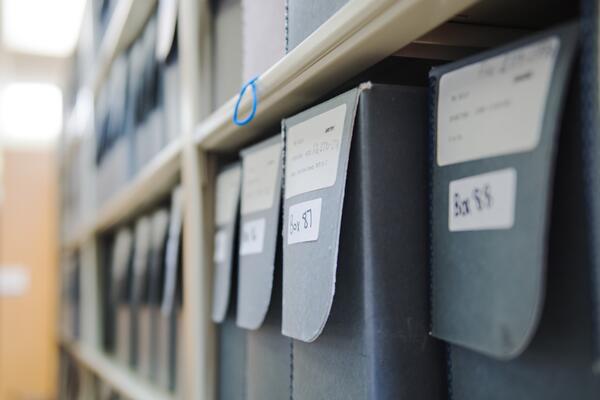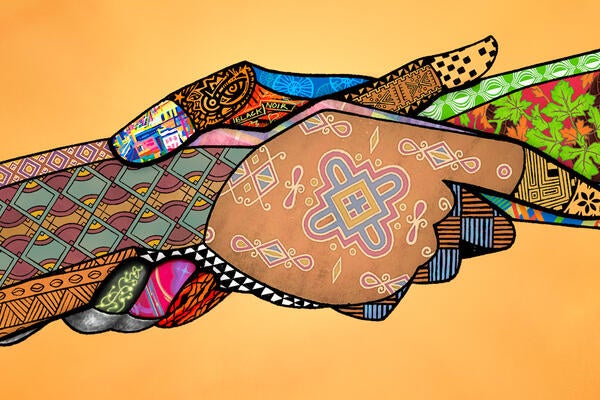
Commitment Ceremony signals a new beginning for Indigenous Peoples and the University of Waterloo
Waterloo commits to decolonization, Indigenization and reconciliation

Waterloo commits to decolonization, Indigenization and reconciliation
By Media RelationsThe Indigenous Peoples of the University of Waterloo asked Vivek Goel, Waterloo's president and vice-chancellor, for a full commitment to reconciliation, Indigenization and decolonization at the institution today.
Goel acknowledged the University’s full commitment through a formal Commitment Ceremony.
“As an institution of learning, the University has a unique role to play in working towards truth and reconciliation,” Goel said. “We must ensure that Indigenous knowledge and ways of knowing are represented in our scholarship, research and teachings.”
Goel acknowledged that Indigenous Peoples are the original inhabitants of this land and continue to suffer devastating cultural loss and cultural disconnect within Canadian society due to the systems built by colonialism.
He committed the University to developing a better understanding of Indigenous history, building an awareness of the damaging intergenerational effects of colonialism and the residential school system and taking responsibility for vital components of the reconciliation process.
Joining Goel in the ceremony was Jean Becker, associate vice-president, Indigenous Relations at Waterloo.
“Reconciliation is more than simply acknowledging mistakes of the past, it is also about recognizing the mistakes that still exist today,” Becker said. “There remains much more that we must advance to achieve Truth and Reconciliation. We must move beyond words and take meaningful action, and that is what we are doing here at Waterloo.”
Elder Myeengun Henry, a former chief, who works as Indigenous knowledge keeper with Waterloo’s Faculty of Health, said the Indigenous commitment ceremony symbolizes a new beginning on the path towards a genuine understanding of Indigenous issues.
“I’m really proud of today,” Henry said. “It has given us the opportunity, for maybe the first time in the history of this country to this extent, to change some of the dreadful stories from the past of residential school, the Sixties Scoop, missing and murdered women and endangering our Mother Earth.”
The day’s events commenced with a sunrise ceremony, which had approximately 250 people in attendance. Later in the morning, during a special Cedar Circle, more than 400 people from the Waterloo community witnessed Goel committing the University to meaningful action toward reconciliation. In attendance were deans of several Faculties and other institutional leaders, as well as Catherine Fife, MPP for Waterloo.
The commitment included a pipe ceremony, after which Elder Henry gave Goel the name Ogiima—meaning leader—and presented him with gifts of an eagle feather and two wampum belts. The belts will be on display in the University’s Senate and Board chamber to guide their work and to serve as a constant reminder of the commitment.
The commitment ceremony concluded with a round dance, in which hundreds of people in attendance joined hands in a giant circle, followed by a feast.
The day’s activities will be followed by several more events over the next week as part of the University’s observance of the National Day for Truth and Reconciliation, which is September 30.

Read more
Upside Robotics secures new funding to accelerate the future of sustainable farming

Read more
Discover the meticulous work that uncovered Black stories on campus and preserved them for the future

Read more
A message from the President and Vice-Chancellor
The University of Waterloo acknowledges that much of our work takes place on the traditional territory of the Neutral, Anishinaabeg, and Haudenosaunee peoples. Our main campus is situated on the Haldimand Tract, the land granted to the Six Nations that includes six miles on each side of the Grand River. Our active work toward reconciliation takes place across our campuses through research, learning, teaching, and community building, and is co-ordinated within the Office of Indigenous Relations.